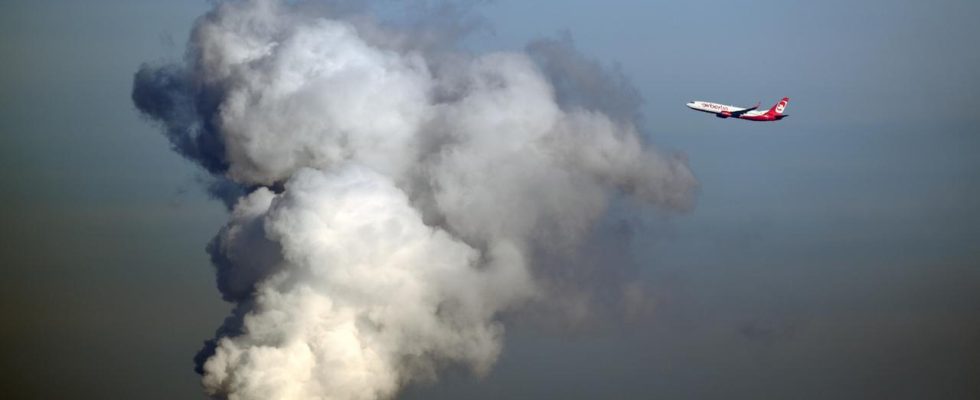There are no longer any doubts about man-made climate change, says the Ethics Council. The fight against this must become fairer: Above all, politicians have a duty – but each and every individual is also responsible.
In the opinion of the German Ethics Council, burdens and obligations in the fight against climate change should be distributed more fairly. “Moral criticism of decisions in the area of private life and consumption is no substitute for necessary political measures,” the council writes in a statement. The committee distinguishes between the responsibility of the individual, politics, companies and international committees.
“It is inappropriate for state actors to expect lower-emission consumption from individuals as long as the prerequisites for this are largely not met or are even counteracted within the economic and social order desired and supported by the same state,” writes the Ethics Council, “so that Lower-emission action in many fields still requires ‘moral heroism’.”
Still question personal behavior
But that does not release “an individual moral obligation to cooperate”. One should think about “personal behavior, one’s own way of life and one’s own civil society commitment” independently of state requirements and change this accordingly – “within the framework of one’s own possibilities and reasonableness”. The aim is that “as many people as possible can achieve the minimum requirements for a good and successful life now and in the future”.
The Council emphasizes at the beginning of its almost 130-page statement that there is “no longer any reasonable doubt” that the earth is warming due to human influence and in particular the burning of fossil fuels. “Unbridled further global warming would have catastrophic consequences.”
Unequal distribution nationally and internationally
The needs of those most affected by climate change should be given priority. “People contribute to climate change in very different ways – that alone raises major questions of justice,” explained Kerstin Schlögl-Flierl from the Ethics Council. “Wealthy people fly more often, while people with less money are particularly burdened by many climate protection measures.” There are also large international differences between the main causes of climate change in the global north and people in the global south, who often particularly suffer from the consequences.
The council called on politicians to take immediate action. What is needed is an overall political concept that includes, for example, the reduction of climate-damaging subsidies or incentives for climate-friendly action. Those who are more efficient must take on more responsibility. This affects countries and companies as well as individual people.
Also other opinions in the Ethics Council
In a dissenting vote, three members partially distanced themselves from the Council’s conclusions. This does not take enough account of the role of innovations, its arguments remain too vague and it must be accused of “excessive and tendentiously illiberal moralism” if it imposes “a moral obligation to cooperate” on individual citizens to get socially involved in combating climate change.
The German Ethics Council is an independent, currently 24-member body that advises the federal government and the Bundestag and is intended to promote social discussions. He deals with ethical, social, scientific, medical and legal issues. The members are scientists and representatives of associations.
Martin Polansky, ARD Berlin, tagesschau, March 13, 2024 1:22 p.m

